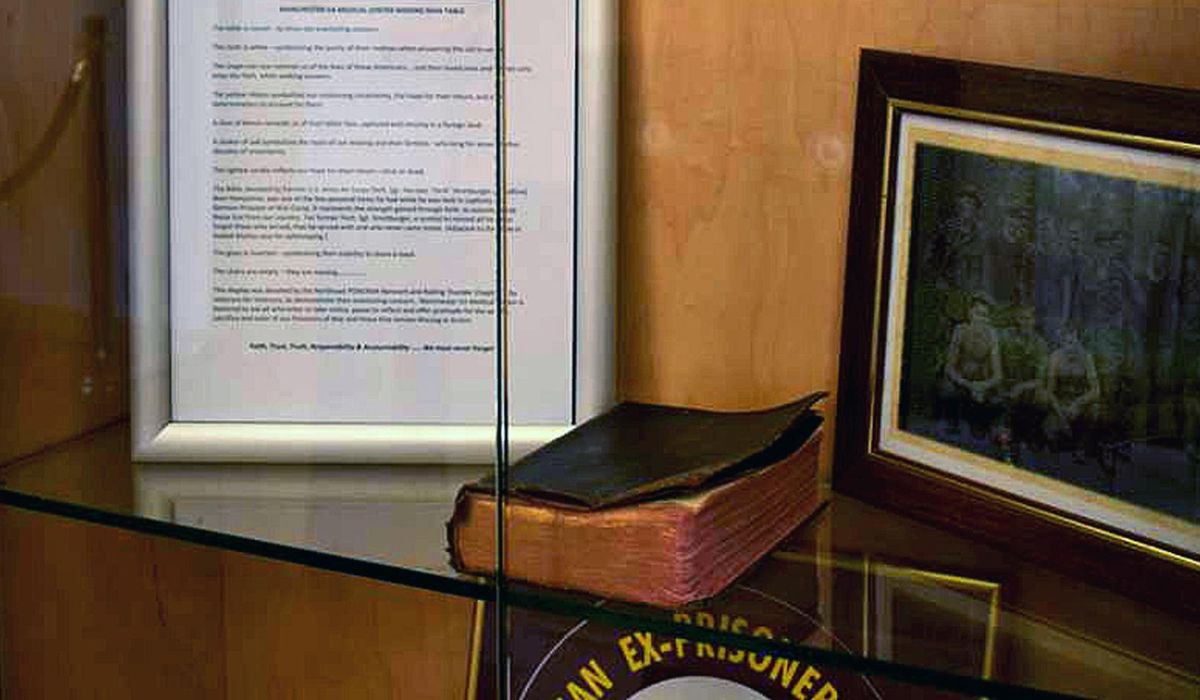Aggrieved atheists, annoyed agnostics and others troubled by a Nativity display, Hanukkah menorah or a poster celebrating Eid al-Fitr at a U.S. military base, might now have a harder time succeeding.
According to a provision in the just-passed National Defense Authorization Act, such complaints will have to be evaluated at a higher level of the Defense Department, which religious-freedom advocates say will discourage “knee-jerk” overreactions.
Previously, low-level base personnel could determine there was no room at the military inn for a Baby Jesus.
Now, such complaints will have to be evaluated by a military department secretary, a defense agency, or a field activity head.
Decision makers would also have to consult with either the chief of chaplains in the case of a military department secretary, or the Armed Forces Chaplains Board, as well as a civilian attorney working for the DOD or an attorney from the Judge Advocate General’s office.
The new rules will “force the decision to be made at a higher level where people can be held accountable,” said Mike Berry, external affairs vice president of First Liberty Institute. “It’s going to force [complaints] to at least undergo some form of scrutiny and legal review before a knee-jerk reaction is made.”
Labeled Section 1049, the provision directs the defense secretary to “prescribe regulations that establish the procedure for the timely determination of a covered complaint or request regarding a public display or public expression of religion on [Defense Department] property.”
Once a complaint is received at a Defense Department installation, it would have to be forwarded to the person who is authorized to decide within 10 days. The decision-maker would have to rule within 30 days and offer a “timely” notification to the complainant of the decision.
Mr. Berry, a Marine reservist and an attorney, told The Washington Times that the new provision should slow down “knee-jerk” reactions from lower-level commanders who receive complaints from “radical activists.”
He said this would cover times when “somebody complained about [a] nativity scene, so we have to remove the nativity scenes, or somebody complained that there was a Christmas tree so we got to take down the Christmas tree. Of course, those decisions have no basis in law or the Constitution, but they nevertheless seem to happen.”
He said the new rule “doesn’t provide for any specific outcomes. It just provides for a specific process and procedure that those decisions now need to go through, which I think is a good first step.”
Less enthused about the move is Mikey Weinstein, founder and president of the Military Religious Freedom Foundation, a group that regularly complains about expressions of religiosity on bases.
MRFF dodged a bullet when a proposal by Rep. Mike Turner, Ohio Republican, to prohibit DOD funds from being used to contact the nonprofit advocacy group did not end up in the final legislation.
Mr. Weinstein called the move an attempt to “assassinate” the organization.
As for the new bill, he said “we are cautiously optimistic that things will turn out very well for us” after President Biden signs the NDAA.
The Washington Times contacted Mr. Turner’s office for comment on the provision that did end up in the final bill.
𝗖𝗿𝗲𝗱𝗶𝘁𝘀, 𝗖𝗼𝗽𝘆𝗿𝗶𝗴𝗵𝘁 & 𝗖𝗼𝘂𝗿𝘁𝗲𝘀𝘆: www.washingtontimes.com
𝗙𝗼𝗿 𝗮𝗻𝘆 𝗰𝗼𝗺𝗽𝗹𝗮𝗶𝗻𝘁𝘀 𝗿𝗲𝗴𝗮𝗿𝗱𝗶𝗻𝗴 𝗗𝗠𝗖𝗔,
𝗣𝗹𝗲𝗮𝘀𝗲 𝘀𝗲𝗻𝗱 𝘂𝘀 𝗮𝗻 𝗲𝗺𝗮𝗶𝗹 𝗮𝘁 dmca@enspirers.com



